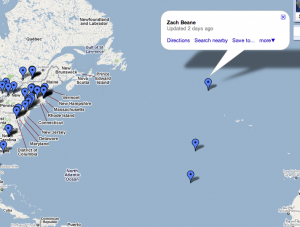For my networking layer library, I wanted to provide ubiquitous logging. At the same time, I did not want to tie the application to my choice of logging library. I wanted the user to be able to pass me a function where I could give them a logging category and something to log.
(defvar *logger-function* nil)
(defmacro log-it (category thing-to-log)
`(when *logger-function*
(funcall *logger-function* ,category ,thing-to-log)))
This seems simple enough, right? Now, throughout my code, I can do things like:
(log-it :list-of-unacked-packets (get-list-of-unacked-packets))
(etc)
The application can register a *logger-function* something like this:
(cl-log:log-message category thing-to-log))
Here’s the problem though: most (all?) logging libraries are good about not evaluating any arguments beyond the category unless something is actually listening for messages of that category. This makes it reasonable to do stuff like this and only take the speed hit when it’s actually important to do so:
(mapcar #'get-excrutiating-detail (append everyone everything)))
With my macro above, I have no way of knowing whether something is listening on a particular category or not. Further, most logging libraries don’t offer a way to query that sort of information.
What to do?
What I wanted to do was to pass a macro from the application package into my networking library instead of passing a function. I spent way too long trying to find a way to make this work (especially considering I ran into the same trouble in October, 2009 trying to use some combination of (macroexpand ...) and (eval ...) to let the caller decide which forms to execute).
All it took was posting to comp.lang.lisp to answer my own question: Closures. I changed my macro to create a closure:
`(when *logger-function*
(funcall *logger-function* ,category #'(lambda () ,thing-to-log))))
Now, the application’s logger function changes slightly and my forms are only evaluated when the logging library evaluates them:
(cl-log:log-message category (funcall thing-to-log-generator))
Hopefully, I will remember next time I run into this.

